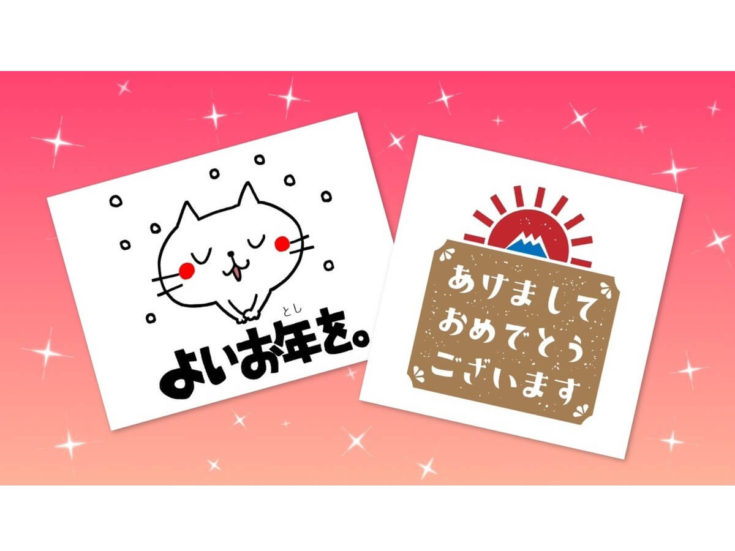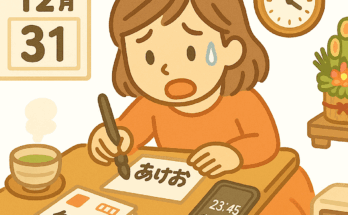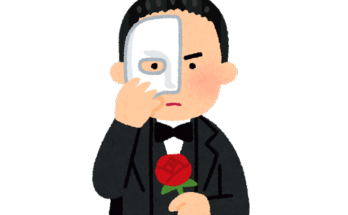It’s Already the Last Month of 2024!
In no time, we’ve arrived at the final month of 2024. In English-speaking countries, people often say “Merry Christmas and Happy New Year!” starting around mid-December. How do Japanese people exchange during the New Year holiday season?
Year-End Greeting: “Yoi otoshi wo omukae kudasai”
If you were living in Japan, as the end of the year approaches, you’d often hear the phrase “Yoi otoshi wo omukae kudasai” or “Yoi otoshi wo.” The literal translation of this greeting is “Please welcome a good New Year.” It’s typically used when parting with each person for the last time that year.
“Yoi otoshi wo” is casual, making it suitable for close colleagues or friends. For business contexts or when addressing superiors, “Yoi otoshi wo omukae kudasai” is a bit more formal and appropriate. If you want to be particularly polite, you can say, “Douzo yoi otoshi wo omukae kudasaimase.” You can refer to the table below if you are interested in the structure of the phrase.
Table 1:
| どうぞ良いお年をお迎えくださいませ | |||
| Word | Romaji (How to read) | Meaning | Grammar/Usage |
| どうぞ | doozo | Please | Polite interjection used to add politeness |
| 良い (よい) | yoi | Good | Adjective, polite form of “いい” (good) |
| お年 (おとし) | otoshi | Year | Noun, uses honorific “お” prefix for respect |
| を | o | a particle that marks the object of an action | |
| お迎え (おむかえ) | omukae | Welcoming | Noun form with honorific “お,” from “迎える” (to welcome) |
| ください | kudasai | Please | Polite request form, from “くださる” meaning “please do (something)” |
| ませ | mase | (Polite emphasis) | Adds extra politeness, often at the end of requests |

New Year’s Greeting #1: “Akemashite omedetou gozaimasu”
At 0:00 (midnight) on January 1st, people start exchanging the greeting “Akemashite omedetou gozaimasu” everywhere. The full, formal version is “Shinnen akemashite omedetou gozaimasu.” You can check a breakdown of the structure of the phrase in table 2 below. In everyday conversation, “Akemashite omedetou gozaimasu” is typically used. With friends or close colleagues, it’s often shortened to just “Omedetou gozaimasu” or simply “Omedetou.” Among children or younger people, it’s even further shortened to “Ake-ome.”
A key point to note is that, unlike the English “Happy New Year,” in Japan, this greeting is only used after January 1st.
Table 2:
| 新年あけましておめでとうございます | |||
| Word | Romaji (How to read) | Meaning | Grammar/Usage |
| 新年 (しんねん) | shinnen | New Year | Noun |
| 明けまして(あけまして) | akemashite | Ending one thing and beginning another | Verb conjugated in -te form, from “明ける(akeru)” meaning “to begin” |
| おめでとう | omedetou | Congratulations | Interjection derived from an adjective “medetai” meaning happy or a matter for congratulation: A word used to express emotions or reactions that comes from the stem of an adjective. |
| ございます | gozaimasu | (Polite ending) | Polite form of “ある(aru)” to make the expression more formal |

New Year’s Greeting #2: “Kotoshi mo yoroshiku onegaishimasu”
Another phrase often paired with “Akemashite omedetou gozaimasu” is “Kotoshi mo yoroshiku onegaishimasu.” A literal translation of this would be “Please take care of me this year as well,” conveying the idea of continued support or cooperation. A more natural English equivalent might be, “Looking forward to working with you this year” or simply, “Let’s have another great year together.”
When used at the start of the year, “Kotoshi mo” (meaning “this year too”) conveys the hope of continuing good relations or working together. You can add politeness by saying, “Kotoshi mo douzo yoroshiku onegai itashimasu.” Among children or younger people, it’s sometimes shortened to “Koto-yoro,” like “Ake-ome.”
New Year’s Manners for Those in Mourning
When someone is in mourning (or “mochuu” in Japanese), it’s customary to avoid celebratory New Year’s greetings. “Mochuu” is a period of refraining from celebrations to honor a family member or relative who has passed away, typically lasting a year, although this can vary based on family or regional practices. For someone who lost a loved one in the previous year, it’s best to skip “Akemashite omedetou gozaimasu” and greet them only with “Kotoshi mo yoroshiku onegaishimasu.” By selecting words that show sensitivity to others’ situations, you convey thoughtfulness.
In Summary
New Year’s greetings in Japan reflect a warm and thoughtful culture. Expressing gratitude for the past year and well wishes for the new one, you might enjoy sharing these uniquely Japanese greetings. And if someone is in mourning, more reserved expressions convey your hopes for their happiness in the coming year.
Thank you for reading my articles this year. “Yoi otoshi wo omukae kudasai!” Wishing you a wonderful New Year!

I live in Osaka and volunteer as a Japanese teacher. After I retire, I’d love to live in Malta in the Mediterranean or on Yakushima Island in Japan someday.





 HTJ has a YouTube page! Check it out
HTJ has a YouTube page! Check it out